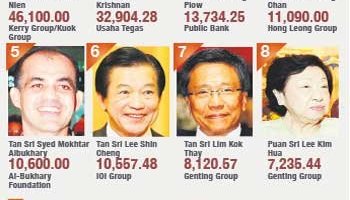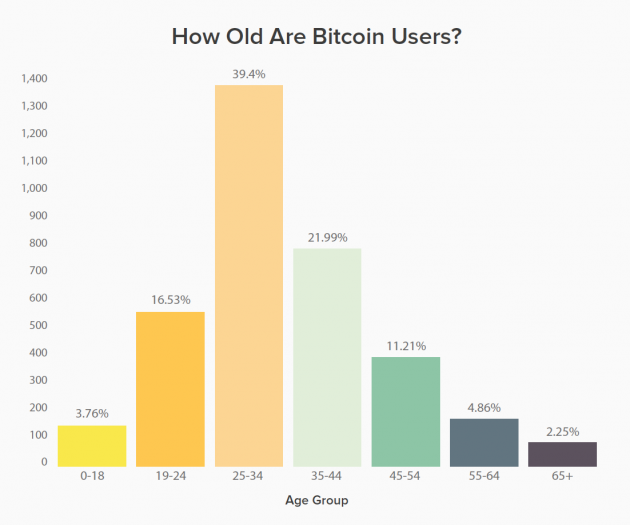They are the most amazing economic ants on Earth, ‘Sugar King’ writes in memoir
Good Chinese business management is second to none; the very best of
Chinese management is without compare. I haven’t seen others come near
to it in my 70year career. Robert KuokThe overseas Chinese were the unsung heroes of the region, having helped to build South East Asia to what it is today, said Malaysian tycoon Robert Kuok (pic).
He said that it was the Chinese immigrants who tackled difficult task such as planting and tapping rubber, opening up tin mines, and ran small retail shops which eventually created a new economy around them.
"It was the Chinese who helped build up Southeast Asia. The Indians also played a big role, but the Chinese were the dominant force in helping to build the economy.
"They came very hungry and eager as immigrants, often barefooted and wearing only singlets and trousers. They would do any work available, as an honest income meant they could have food and shelter.
"I will concede that if they are totally penniless, they will do almost anything to get their first seed capital. But once they have some capital, they try very hard to rise above their past and advance their reputations as totally moral, ethical businessmen," Kuok said based on excerpts of his memoir reported in the South China Morning Post .
“Robert Kuok, A Memoir’ is set to be released in Malaysia on Dec 1.
Kuok said the Chinese immigrants were willing to work harder than anyone else and were willing to "eat bitterness", hence, were the most amazing economic ants on earth.
In the extracted memoir published by the South China Morning Post, Kuok, pointed out that if there were any businesses to be done on earth, one can be sure that a Chinese will be there.
"They will know whom to see, what to order, how best to save, how to make money. They don’t need expensive equipment or the trappings of office; they just deliver.
"I can tell you that Chinese businessmen compare notes every waking moment of their lives. There are no true weekends or holidays for them. That’s how they work. Every moment, they are listening, and they have skilfully developed in their own minds – each and every one of them – mental sieves to filter out rubbish and let through valuable information.
"Good Chinese business management is second to none; the very best of Chinese management is without compare. I haven’t seen others come near to it in my 70-year career," he said.
"They flourish without the national, political and financial sponsorship or backing of their host countries. In Southeast Asia, the Chinese are often maltreated and looked down upon. Whether you go to Malaysia, Sumatra or Java, the locals call you Cina – pronounced Chee-na – in a derogatory way," he said.
He added that the Chinese had no "fairy godmothers" financial backers.
"Yet, despite facing these odds, the overseas Chinese, through hard work, endeavour and business shrewdness, are able to produce profits of a type that no other ethnic group operating in the same environment could produce," he said.
Kuok ultimately attributed the Chinese survivability in Southeast Asia to its cultural strength.
"They knew what was right and what was wrong. Even the most uneducated Chinese, through family education, upbringing and social environment, understands the ingredients and consequences of behaviour such as refinement, humility, understatement, coarseness, bragging and arrogance," he said.
Related Links:
































 Gallant force: Tun Abdul Rahman (with sash) inspecting the guard of honour from the Federal Reserve Unit during the opening ceremony of the 13th state assembly meeting in front of the Penang state assembly building in Light Street, George Town. — GARY CHEN/The Star
Gallant force: Tun Abdul Rahman (with sash) inspecting the guard of honour from the Federal Reserve Unit during the opening ceremony of the 13th state assembly meeting in front of the Penang state assembly building in Light Street, George Town. — GARY CHEN/The Star  Abdul Rahman shaking hands with Opposition leader Datuk Jahara Hamid (with black tudung) at the state assembly opening in Penang
Abdul Rahman shaking hands with Opposition leader Datuk Jahara Hamid (with black tudung) at the state assembly opening in Penang
 Lim (right) chatting with some of the elected representatives before a group photo at the 13th state assembly opening ceremony outside the state assembly building in Light Street, George Town.
Lim (right) chatting with some of the elected representatives before a group photo at the 13th state assembly opening ceremony outside the state assembly building in Light Street, George Town.



